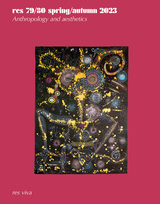108 books about Queer theory and 9
start with T
108 books about Queer theory and 9
108 books about Queer theory
9 start with T start with T
9 start with T start with T

Tendings
Feminist Esoterisms and the Abolition of Man
Nathan Snaza
Duke University Press, 2024
In Tendings, Nathan Snaza brings contemporary feminist and queer popular culture’s resurging interest in esoteric practices like tarot and witchcraft into conversation with Black feminist and new materialist thought. Analyzing writing and performances by Maryse Condé, Barbara Ehrenreich and Deirdre English, Starhawk, Christina Sharpe, Alexis Pauline Gumbs, and others, Snaza introduces his theory of tending as a concept that links ontology, attunement, care, and anticipatory action to explore how worlds persist through everyday acts of participation. In contrast to the universalizing presuppositions of the enlightenment, Snaza shows how certain feminist occult and esoteric practices constitute what he calls an endarkenment that embraces decolonial spiritual knowledge. Highlighting how endarkenment practices challenge universal presumptions and reject the racializing and colonialist mission of enlightenment modernity, Snaza demonstrates the ways esoterism affirms a pluriversal worldview that reimagines what it means to live in a more-than-human world.
[more]
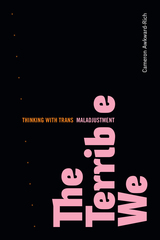
The Terrible We
Thinking with Trans Maladjustment
Cameron Awkward-Rich
Duke University Press, 2022
In The Terrible We Cameron Awkward-Rich thinks with the bad feelings and mad habits of thought that persist in both transphobic discourse and trans cultural production. Observing that trans studies was founded on a split from and disavowal of madness, illness, and disability, Awkward-Rich argues for and models a trans criticism that works against this disavowal. By tracing the coproduction of the categories of disabled and transgender in the United States at the turn of the twentieth century and analyzing transmasculine literature and theory by Eli Clare, Elliott DeLine, Dylan Scholinski, and others, Awkward-Rich suggests that thinking with maladjustment might provide new perspectives on the impasses arising from the conflicted relationships among trans, feminist, and queer. In so doing, he demonstrates that rather than only impeding or confining trans life, thought, and creativity, forms of maladjustment have also been and will continue to be central to their development.
Duke University Press Scholars of Color First Book Award recipient
Duke University Press Scholars of Color First Book Award recipient
[more]
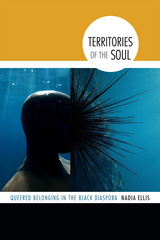
Territories of the Soul
Queered Belonging in the Black Diaspora
Nadia Ellis
Duke University Press, 2015
Nadia Ellis attends to African diasporic belonging as it comes into being through black expressive culture. Living in the diaspora, Ellis asserts, means existing between claims to land and imaginative flights unmoored from the earth—that is, to live within the territories of the soul. Drawing on the work of Jose Muñoz, Ellis connects queerness' utopian potential with diasporic aesthetics. Occupying the territory of the soul, being neither here nor there, creates in diasporic subjects feelings of loss, desire, and a sensation of a pull from elsewhere. Ellis locates these phenomena in the works of C.L.R. James, the testy encounter between George Lamming and James Baldwin at the 1956 Congress of Negro Artists and Writers in Paris, the elusiveness of the queer diasporic subject in Andrew Salkey's novel Escape to an Autumn Pavement, and the trope of spirit possession in Nathaniel Mackey's writing and Burning Spear's reggae. Ellis' use of queer and affect theory shows how geographies claim diasporic subjects in ways that nationalist or masculinist tropes can never fully capture. Diaspora, Ellis concludes, is best understood as a mode of feeling and belonging, one fundamentally shaped by the experience of loss.
[more]
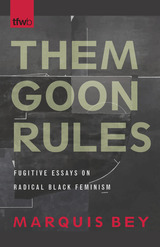
Them Goon Rules
Fugitive Essays on Radical Black Feminism
Marquis Bey
University of Arizona Press, 2019
Marquis Bey’s debut collection, Them Goon Rules, is an un-rulebook, a long-form essayistic sermon that meditates on how Blackness and nonnormative gender impact and remix everything we claim to know.
A series of essays that reads like a critical memoir, this work queries the function and implications of politicized Blackness, Black feminism, and queerness. Bey binds together his personal experiences with social justice work at the New York–based Audre Lorde Project, growing up in Philly, and rigorous explorations of the iconoclasm of theorists of Black studies and Black feminism. Bey’s voice recalibrates itself playfully on a dime, creating a collection that tarries in both academic and nonacademic realms.
Fashioning fugitive Blackness and feminism around a line from Lil’ Wayne’s “A Millie,” Them Goon Rules is a work of “auto-theory” that insists on radical modes of thought and being as a refrain and a hook that is unapologetic, rigorously thoughtful, and uncompromising.
A series of essays that reads like a critical memoir, this work queries the function and implications of politicized Blackness, Black feminism, and queerness. Bey binds together his personal experiences with social justice work at the New York–based Audre Lorde Project, growing up in Philly, and rigorous explorations of the iconoclasm of theorists of Black studies and Black feminism. Bey’s voice recalibrates itself playfully on a dime, creating a collection that tarries in both academic and nonacademic realms.
Fashioning fugitive Blackness and feminism around a line from Lil’ Wayne’s “A Millie,” Them Goon Rules is a work of “auto-theory” that insists on radical modes of thought and being as a refrain and a hook that is unapologetic, rigorously thoughtful, and uncompromising.
[more]
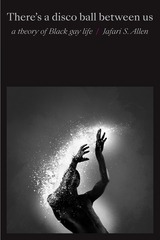
There's a Disco Ball Between Us
A Theory of Black Gay Life
Jafari S. Allen
Duke University Press, 2021
In There’s a Disco Ball Between Us, Jafari S. Allen offers a sweeping and lively ethnographic and intellectual history of what he calls “Black gay habits of mind.” In conversational and lyrical language, Allen locates this sensibility as it emerged from radical Black lesbian activism and writing during the long 1980s. He traverses multiple temporalities and locations, drawing on research and fieldwork conducted across the globe, from Nairobi, London, and Paris to Toronto, Miami, and Trinidad and Tobago. In these locations and archives, Allen traces the genealogies of Black gay politics and cultures in the visual art, poetry, film, Black feminist theory, historiography, and activism of thinkers and artists such as Audre Lorde, Marsha P. Johnson, Essex Hemphill, Colin Robinson, Marlon Riggs, Pat Parker, and Joseph Beam. Throughout, Allen renarrates Black queer history while cultivating a Black gay method of thinking and writing. In so doing, he speaks to the urgent contemporary struggles for social justice while calling on Black studies to pursue scholarship, art, and policy derived from the lived experience and fantasies of Black people throughout the world.
[more]

Time Binds
Queer Temporalities, Queer Histories
Elizabeth Freeman
Duke University Press, 2010
Time Binds is a powerful argument that temporal and sexual dissonance are intertwined, and that the writing of history can be both embodied and erotic. Challenging queer theory’s recent emphasis on loss and trauma, Elizabeth Freeman foregrounds bodily pleasure in the experience and representation of time as she interprets an eclectic archive of queer literature, film, video, and art. She examines work by visual artists who emerged in a commodified, “postfeminist,” and “postgay” world. Yet they do not fully accept the dissipation of political and critical power implied by the idea that various political and social battles have been won and are now consigned to the past. By privileging temporal gaps and narrative detours in their work, these artists suggest ways of putting the past into meaningful, transformative relation with the present. Such “queer asynchronies” provide opportunities for rethinking historical consciousness in erotic terms, thereby countering the methods of traditional and Marxist historiography. Central to Freeman’s argument are the concepts of chrononormativity, the use of time to organize individual human bodies toward maximum productivity; temporal drag, the visceral pull of the past on the supposedly revolutionary present; and erotohistoriography, the conscious use of the body as a channel for and means of understanding the past. Time Binds emphasizes the critique of temporality and history as crucial to queer politics.
[more]
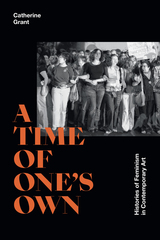
A Time of One's Own
Histories of Feminism in Contemporary Art
Catherine Grant
Duke University Press, 2022
In A Time of One’s Own Catherine Grant examines how contemporary feminist artists are turning to broad histories of feminism ranging from political organizing and artworks from the 1970s to queer art and activism in the 1990s. Exploring artworks from 2002 to 2017 by artists including Sharon Hayes, Mary Kelly, Allyson Mitchell, Deirdre Logue, Lubaina Himid, Pauline Boudry, and Renate Lorenz, Grant maps a revival of feminism that takes up the creative and political implications of forging feminist communities across time and space. Grant characterizes these artists’ engagement with feminism as a fannish, autodidactic, and collective form of learning from history. This fandom of feminism allows artists to build relationships with previous feminist ideas, artworks, and communities that reject a generational model and embrace aspects of feminism that might be seen as embarrassing, queer, or anachronistic. Accounting for the growing interest in feminist art, politics, and ideas across generations, Grant demonstrates that for many contemporary feminist artists, the present moment can only be understood through an embodied engagement with history in which feminist pasts are reinhabited and reimagined.
[more]
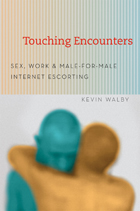
Touching Encounters
Sex, Work, and Male-for-Male Internet Escorting
Kevin Walby
University of Chicago Press, 2012
Often depicted as deviant or pathological by public health researchers, psychoanalysts, and sexologists, male-with-male sex and sex work is, in fact, an increasingly mainstream pursuit. Based on a qualitative investigation of the practices involved in male-with-male—or m4m—Internet escorting, Touching Encounters is the first book to explicitly address how masculinity and sexuality shape male commercial sex in this era of Internet communications.
By looking closely at the sex and work of male escorts, Kevin Walby tries to reconcile the two extremes of m4m sex—the stereotypical idea of a quick cash transaction and the tendency toward friendship and mutuality. In doing so, Walby draws on the work of Foucault to make visible the play of power in these physical and commercial relations between men. At once a revelation to the sociology of work and a much-needed critical engagement with queer theory, Touching Encounters responds to calls from across the social sciences to connect Foucault with sociologies of sex, sexuality, and intimacy. Walby does this and more, retying this sexual practice back to society at large.
[more]

Turning Archival
The Life of the Historical in Queer Studies
Daniel Marshall and Zeb Tortorici, editors
Duke University Press, 2022
The contributors to Turning Archival trace the rise of “the archive” as an object of historical desire and study within queer studies and examine how it fosters historical imagination and knowledge. Highlighting the growing significance of the archival to LGBTQ scholarship, politics, and everyday life, they draw upon accounts of queer archival encounters in institutional, grassroots, and everyday repositories of historical memory. The contributors examine such topics as the everyday life of marginalized queer immigrants in New York City as an archive; secondhand vinyl record collecting and punk bootlegs; the self-archiving practices of grassroots lesbians; and the decolonial potential of absences and gaps in the colonial archives through the life of a suspected hermaphrodite in colonial Guatemala. Engaging with archives from Africa to the Americas to the Arctic, this volume illuminates the allure of the archive, reflects on that which resists archival capture, and outlines the stakes of queer and trans lives in the archival turn.
Contributors. Anjali Arondekar, Kate Clark, Ann Cvetkovich, Carolyn Dinshaw, Kate Eichhorn, Javier Fernández-Galeano, Emmett Harsin Drager, Elliot James, Marget Long, Martin F. Manalansan IV, Daniel Marshall, María Elena Martínez, Joan Nestle, Iván Ramos, David Serlin, Zeb Tortorici
Contributors. Anjali Arondekar, Kate Clark, Ann Cvetkovich, Carolyn Dinshaw, Kate Eichhorn, Javier Fernández-Galeano, Emmett Harsin Drager, Elliot James, Marget Long, Martin F. Manalansan IV, Daniel Marshall, María Elena Martínez, Joan Nestle, Iván Ramos, David Serlin, Zeb Tortorici
[more]
READERS
Browse our collection.
PUBLISHERS
See BiblioVault's publisher services.
STUDENT SERVICES
Files for college accessibility offices.
UChicago Accessibility Resources
home | accessibility | search | about | contact us
BiblioVault ® 2001 - 2024
The University of Chicago Press






